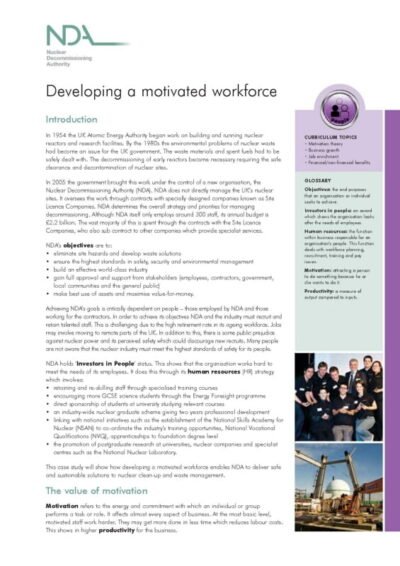
Many feel too overwhelmed or uncomfortable to seek help. As an established mental health practitioner looking for ways to expand and further develop your practice, you’ll want to keep up with best practices and innovative approaches that can attract clients seeking your services.
Here are ten tips to help you sustainably grow your mental health practice:
1. Offer Telehealth Services
Offering telehealth options can make your practice more accessible and convenient for clients, which is particularly important for those who live in remote areas, have limited mobility, or prefer the comfort of their own space. To effectively implement telehealth in your practice, ensure a secure and compliant telehealth platform. Invest in a high-quality camera and microphone for clear communication. Be well-versed in teletherapy best practices, such as maintaining a professional and confidential setting for virtual sessions.
2. Network and Collaborate
Building relationships with other healthcare professionals, community organisations, and local businesses can lead to referrals and partnerships. Reach out to primary care physicians, school counsellors, or employee assistance programs to establish mutually beneficial relationships. You can refer clients to these professionals, who can do the same for you. It can also expand your reach and offer joint workshops or support group opportunities.
Partner with local businesses to provide workshops on stress management or mindfulness in the workplace. Remember, building strong relationships with other professionals in the healthcare field can lead to opportunities for continuing education and staying up-to-date on best practices in the industry.
3. Create a Welcoming Environment
This includes having:
- Comfortable furniture
- Soothing colours and decorations
- Maintaining cleanliness.
You can also offer amenities such as water or tea to make your clients feel more at ease. Include relaxation techniques in the waiting room, such as calming music or essential oil diffusers. Creating a pleasant atmosphere puts your clients at ease and reflects positively on your practice. Make sure also to pay attention to any cultural considerations and make accommodations accordingly.
4. Online Scheduling
This convenience can be especially appealing for busy individuals who may not have time to call and schedule appointments during traditional office hours. It allows for easier rescheduling or cancelling if needed. Many software options allow you to securely integrate online scheduling into your website or social media pages. You can click to learn about the best mental health management software and how it can help you.
To prevent no-shows and allow for flexibility in case of emergencies. Use a secure platform that protects client information and allows easy communication between you and your clients. Practitioners can better manage their time and reduce scheduling errors, while clients can easily find a slot that fits their schedule.
5. Continuous Marketing and Promotion
Utilise email marketing, networking events, or creating a referral program to attract new clients continuously. Ensure to stay connected with current and previous clients through newsletters or social media updates to maintain their loyalty. Consider offering promotions or special deals for new clients to encourage them to try out your services.
Collaborate with other businesses or organisations in your community for joint events or promotions. Remember, word-of-mouth marketing is powerful, consistently provides high-quality services, and encourages satisfied clients to refer others to your practice. As your practice grows, don’t forget to consistently evaluate and adjust your marketing strategies to ensure they align with your goals and values as a mental health professional.
6. Flexible Payment Options
Financial barriers can often prevent individuals from seeking therapy. Consider offering flexible payment options such as sliding scale fees or accepting insurance to make your services more accessible. This will attract clients who may not have been able to afford therapy otherwise and show that you prioritise accessibility and inclusivity in your practice.
Partner with local organisations or nonprofits to offer discounted services for those in need. Value your time and expertise while also making sure your services are affordable for the community you serve.
7. Focus On Quality Care
Providing high-quality care should always be the top priority when running a mental health practice, as this will keep existing clients coming back while attracting new ones through positive word-of-mouth referrals from satisfied customers.
Make sure that all interactions with clients are professional yet personable, and take time after each session to review notes from previous sessions so you have an accurate understanding of how each client is progressing over time.
8. Continuously Educate Yourself
Attend conferences, online courses, workshops, or seminars related to your speciality or areas of interest. This expands your knowledge and allows you to network with other professionals and potentially gain referrals or partnerships. Many conferences offer continuing education units (CEUs) which can help you fulfil the requirements for maintaining your licence.
Regularly check for upcoming events and plan to attend ones that benefit your practice the most. Present at a conference or workshop to establish yourself as an expert in your field and increase visibility for your practice. Seek supervision or consultation from other experienced professionals for ongoing growth and learning.
9. Optimise Your Website
Your website is often the first impression potential clients will have of your practice. Make sure to update and optimise it for a user-friendly experience regularly. Test your website’s loading speed and mobile optimization, and ensure all links work properly. Incorporate keywords related to your practice and location for better search engine optimization (SEO).
Utilise attractive visuals, such as photos or videos. Include a call-to-action button on each page to encourage visitors to schedule an appointment or contact you for more information.
Whether it’s trauma therapy, child and adolescent counselling, addiction treatment, or any other niche, clearly communicating your expertise on your website and marketing materials is essential. Clients often seek therapists with experience in their particular issues or concerns.
10. Invest in Paid Advertising
This can include online advertisements on social media platforms, Google Ads, or local community publications. Target your advertisements toward your ideal client base by utilising demographics and keywords that align with your practice. Consider collaborating with influencers or businesses in related fields for sponsored posts or promotions.
While paid advertising can effectively attract new clients, it should not be the sole focus of your marketing strategy. Continuously prioritise building genuine connections and providing quality services, as these will ultimately lead to long-term success for your practice.
Endnote
It is important to remember that managing a successful mental health practice does not happen overnight. It takes total dedication to create a sustainable foundation for success. Stay up-to-date with current research, attend conferences and workshops, utilise new technology, and continuously seek supervision or consultation from experienced professionals. Always prioritise providing quality care and staying true to your values as a mental health expert in running your practice.
 Developing a motivated workforce (PDF)
Developing a motivated workforce (PDF) 